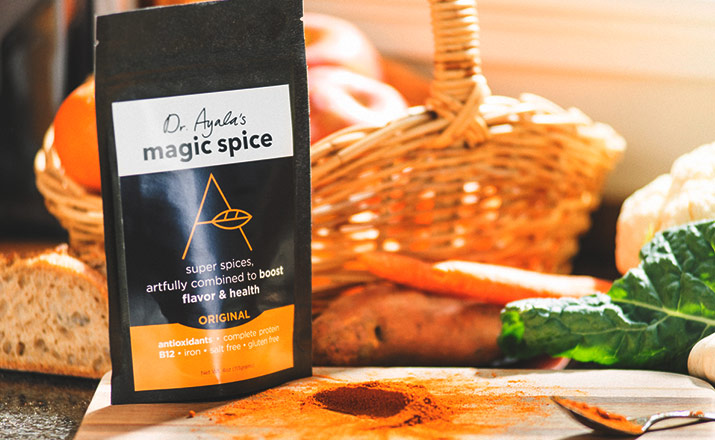
Smart Eating for a Successful School Year

It’s back to school season, and to get the school year off to a good start kids need not only school supplies and enough sleep – they need the right healthy foods to fuel their studies.
There’s no doubt that hunger interferes with learning. Skipping breakfast hurts academics, and studies link missing that important morning meal with less alertness, diminished memory and slower processing and problem solving.
But eating for best school performance goes beyond having enough calories to keep young tummies from rumbling. Previous research has tied getting enough fruits and veggies with better school performance, and the Mediterranean diet, hailed for its heart health benefits, has also been shown to be good for academics. On the other hand, highly processed foods and a Western diet pattern – soda, fast food and sweets – are associated with less favorable school performance.
Why would fruits and vegetables and a Mediterranean diet help with math and grammar, and how can French fries hurt kids’ academic skills? One possible mechanism is inflammation.

Anti-inflammatory foods and school performance
Inflammation is linked with many disease processes, from heart disease, aging, arthritis and cancer, to depression and Alzheimer’s. Could foods that promote inflammation affect young brains at school?
Researchers from Portugal examined the diet of 524 sixth graders, considered the inflammatory properties of the foods and drinks the kids ate, and correlated those to school performance. Their findings appear in a new paper published in Public Health Nutrition.
To assess the inflammatory potential of the kids’ diets the researchers used the Dietary Inflammatory Index, a tool that gives foods a score, and rates them as pro-inflammatory, neutral or anti-inflammatory. To create the index thousands of scientific articles were reviewed, and each food and nutrient received a score.
Foods that have strong anti-inflammatory activity include fruits (such as strawberries, blueberries, grapes, oranges etc.), green veggies (kale, broccoli, spinach), nuts, olive oil, and spices and herbs (which top the list and are the most potent anti-inflammatory foods). Foods and nutrients with pro-inflammatory activity include fried foods, soda and sugary drinks, foods high in saturated fat, refined carbs (white bread, pastries), red and processed meat and foods with lots of iron.
The kids in the study score ranged from -4.27 to +3.21. the kids’ school performance was assessed using school records.
The results show that an anti-inflammatory diet clearly correlated with school performance. This was true after adjusting for confounders such as socioeconomic status and BMI. Kids who ate a diet rich in fiber, fruits and veggies, and a more Mediterranean diet, had better academic scores, while kids who ate a more Western diet – refined sugars, soda, saturated fats, highly processed foods – had lower scores.

Starting the year right
While this is the first study to examine foods’ inflammatory index effect on studies, there’s already plenty of evidence to justify eating fruits, veggies a wholesome breakfast in order to start the school day right. Season kids' foods with anti-inflammatory spices – top of the list super-performers include turmeric, cayenne, ginger and black pepper – and these veggies will become tastier and even more potent.
And let’s not forget the other thing that helps maximize the capacity to learn: physical activity. Students who are fit and who exercise regularly have better grades, better memory and concentration and behave better in class. And that’s one more reason why recess is ever so important.
To a happy and healthy school year!
Dr. Ayala
In Same Category
- Diet affects vulnerability to Covid-19
- To Fight Inflammation Try Your Spice Rack
- Make Vegetables Sexy
- It Isn’t Meat, but Is It Delivering on Plant-Based?
- Activating Brown Fat – and Your Metabolism – with Turmeric, Coffee and Other Goodies
- Here's Why You Need to Cook More
- Top Healthy Food Trends for 2019
- An Easy, Proven Trick for Eating Healthier
- 12 Delicious Cooking Tips That Will Set You Free From The Salt Trap
- Smart Eating for a Successful School Year
- Fitness, Mindfulness and Healthy Eating – There’s an App for That
- Sustainable Summer: Greening your BBQ
- How to Eat Healthy in College and Avoid Weight Gain on Cafeteria Food
- Want Kids to Eat More Veggies? Season Them Up!
- All You Ever Wanted to Know About Nutritional Yeast and Its Health Benefits
- Falling in Love with Kickstarter
- Fighting Inflammation with Spices
- 3 Things Plant-Based Eaters Should Watch For
- Turmeric Absorption and Tips to Enhance Its Activity
- BEFORE & AFTER: Roasted Sweet Potatoes
- BEFORE & AFTER: Baked Potato Wedges
- BEFORE & AFTER: Roasted Cauliflower
Related by Tags
- To Fight Inflammation Try Your Spice Rack
- Top Healthy Food Trends for 2019
- Smart Eating for a Successful School Year
- Sustainable Summer: Greening your BBQ
- Want Kids to Eat More Veggies? Season Them Up!
- All You Ever Wanted to Know About Nutritional Yeast and Its Health Benefits
- Fighting Inflammation with Spices
- 3 Things Plant-Based Eaters Should Watch For
- Turmeric Absorption and Tips to Enhance Its Activity
